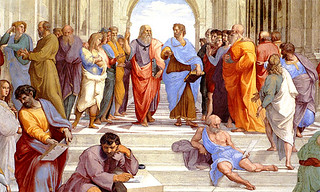Leslie Lamport to Programmers: You're Doing it Wrong

Famous computer scientist Leslie Lamport is definitely not a worse is better kind of guy. In Computation and State Machines he wants to make the case that to get better programs we need to teach programmers to think better. And programmers will think better when they learn to think in terms of concepts firmly grounded in the language of mathematics.
I was disappointed that there was so much English in the paper. Surely it would have been more convincing if it was written as a mathematical proof. Or would it?
This whole topic has been argued extensively throughout thousands of years of philosophy. Mathematics has always been a strange attractor for those trying to escape a flawed human rationality. In the end as alluring as the utopia of mathematics is, it lacks a coherent theory of meaning and programming is not about rearranging ungrounded symbols, it's about manipulating and shaping meaning.
For programmers I think Ludwig Wittgenstein has the right sense of things. Meaning is derived by use within a community. Programs built and maintained by programmers is at bottom a community of effort.
Abstract:
For quite a while, I’ve been disturbed by the emphasis on language in computer science. One result of that emphasis is programmers who are C++ experts but can’t write programs that do what they’re supposed to. The typical computer science response is that programmers need to use the right programming/specification/development language instead of/in addition to C++. The typical industrial response is to provide the programmer with better debugging tools, on the theory that we can obtain good programs by putting a monkey at a keyboard and automatically finding the errors in its code.
I believe that the best way to get better programs is to teach programmers how to think better. Thinking is not the ability to manipulate language; it’s the ability to manipulate concepts. Computer science should be about concepts, not languages. But how does one teach concepts without getting distracted by the language in which those concepts are expressed? My answer is to use the same language as every other branch of science and engineering—namely, mathematics. But how should that be done in practice? This note represents a small step towards an answer. It doesn’t discuss how to teach computer science; it simply addresses the preliminary question of what is computation.




